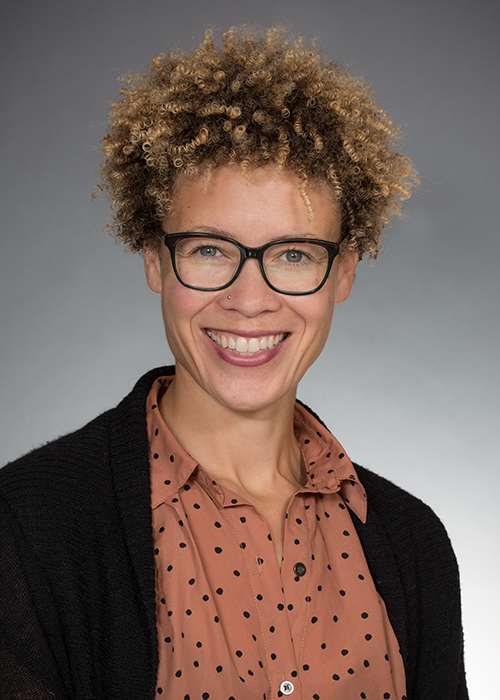Wendy Barrington, PhD, MPH, acknowledges that being biracial provides her with a unique opportunity to question and disrupt health care systems.
“I’ve always been interested in understanding in why we have differences in health across segments of our population based on race and ethnicity,” she said. “I’m interested in the social structures, systems, policies and practices that shape people’s opportunities in resources for health.”
As a biracial Black woman, Barrington said she has experienced both the effects of racial disparities in health care, as well as benefited from being white.
“It’s provided me the understanding of ways in which institutions operate,” she said. “And how I present physically, and even in terms of my voice, has presented me with more opportunities, and I acknowledge that.”
This perspective, she said, gives her the means to champion equity by thoroughly listening to communities of color and speaking truth to power.
“We have a charge as people who are living collectively within this country to ensure that we are holding true to our values,” she said. “I truly am invested in promoting equity in terms of opportunities, resources and outcomes, because it isn’t fair otherwise.”
Barrington, who received her master of public health in epidemiology from The University of New Mexico in 2005, is the inaugural director of the Center for Anti-Racism and Community Health at the University of Washington (UW) in Seattle, Wash. There she studies and develops ways to address the root causes of racial health inequities.
While she might not have expected this appointment early on in her career, she now knows that the role provides a place for her to further express her lifelong commitment to calling out injustices and demanding change.
“I have several colleagues – other directors across the nation who are leading these anti-racism centers – and we all have this common love of people,” she said. “That’s why I do the work that I do.”
She is also an associate professor within the UW School of Public Health and School of Nursing. In all her work as an instructor, she said she focuses on promoting health communities and addressing racial disparities in health service delivery and clinical outcomes.
“We’re taking an explicit anti-racist approach by having the courses grounded in promoting Black health and wellness,” she said.
Barrington’s interest in health care sparked as an undergraduate at Stanford University, where she felt an overwhelming urge to help people.
Initially, Barrington’s undergraduate plan was to enter a pre-medicine program. While she was interested in biology and chemistry, she found herself more interested in big-picture systems thinking – observing events and data, identifying patterns of behavior overtime and discovering driving underlying structures.
“I needed to kind of zoom out,” she said.
A senior-year epidemiology course opened her eyes to the public health field, where she learned she could have a career in providing support and promoting well-being for entire populations. That’s when she pursued her master's at UNM.
“UNM was really a soft landing place for me. It was a very nurturing place for me to explore my interest in public health,” she said. “I realized I could apply population health strategies and help more people, rather than help one person that’s right in front of me in a clinical setting.”
